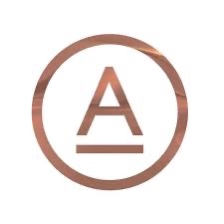How to Elope in British Columbia?
- Alisha Khan Photography
- Feb 19, 2024
- 3 min read
Updated: Dec 8, 2024
Discover what elopement entails and the requirements for ensuring that your elopement is legally binding.
As we searched for inspiration for our weekly blog, we stumbled upon some intriguing questions: What does elopement mean, and why do couples choose to elope? Is elopement legal? In this blog post, we'll delve into these questions and provide insights into the legalities and essentials for planning an elopement here in British Columbia, Canada.
Let's begin with the fundamental question: What does elopement mean, and why do couples choose this route?
Historically, elopement referred to a secretive and spontaneous wedding ceremony, often stemming from familial disapproval or the desire to escape arranged marriages. It's important to distinguish elopements from practices like "bride-knapping" or shotgun weddings, as elopements have always been consensual affairs.
In modern times, elopements are embraced for their intimacy and spontaneity. Unlike traditional weddings, which can take months or even years to plan, elopements offer a simple, small-scale, and cost-effective alternative. Importantly, today's elopements need not be shrouded in secrecy; many couples simply prefer the privacy and spontaneity that elopement offers without necessarily keeping it a secret from loved ones.
Next up: Is Elopement Legal?
Absolutely! Getting married through elopement is completely legal. In British Columbia, ensuring the legality of your elopement is simple. You'll just need three things: a marriage license, a marriage commissioner or officiant, and two witnesses.
Marriage Licenses: These can be obtained for $100, but remember to do this at least three months before your wedding date. Only one party needs to be present when acquiring the license, and it must be done in person with primary identification for both individuals. You can find a list of accepted identification and locations to obtain your marriage license here.
Marriage Commissioner or Officiant: Your wedding must be signed by an authorized person to be legally binding. This can be a marriage commissioner, wedding officiant, or a religious representative. Opting for a marriage commissioner or officiant offers flexibility, especially for couples from different faith backgrounds. While commissioners follow a government-approved script, officiants provide more personalized ceremonies and may spend additional time getting to know the couple and their loved ones. This is why marriage commissioners charge a minimal fee compared to an officiant.
Witnesses: Two witnesses are required for your elopement to be legally recognized. They must be physically present at the ceremony and able to sign the marriage license. Remember, your photographer/s can fulfill this role too!
By fulfilling these simple requirements, you'll ensure that your elopement is not only romantic and intimate but also legally binding.
!!! Another Important Aspect: Securing Permits for Your Location !!!
In addition to the essentials, like obtaining a marriage license and arranging for an officiant, don't forget about securing permits for your chosen location. This step is crucial, especially if you're opting for a picturesque backdrop such as a mountaintop, national park, or other government-protected areas – all popular choices for elopements.
While the idea of obtaining permits may seem daunting, it's often much simpler than expected. Many parks and protected areas have straightforward registration processes. By completing a registration form and openly communicating your plans, you can easily secure the necessary permissions.
However, availability can be a challenge, so it's wise to plan ahead and register for your preferred date as early as possible.

The featured photos are from Lauren and Sven's elopement at Brockton Point in Stanley Park. You can view their photos here. They opted for a 2 hour session, and that allowed to cover their wedding and shoot some wedding photos.
Alisha Khan Elopement Package starts at $750.
































Comments